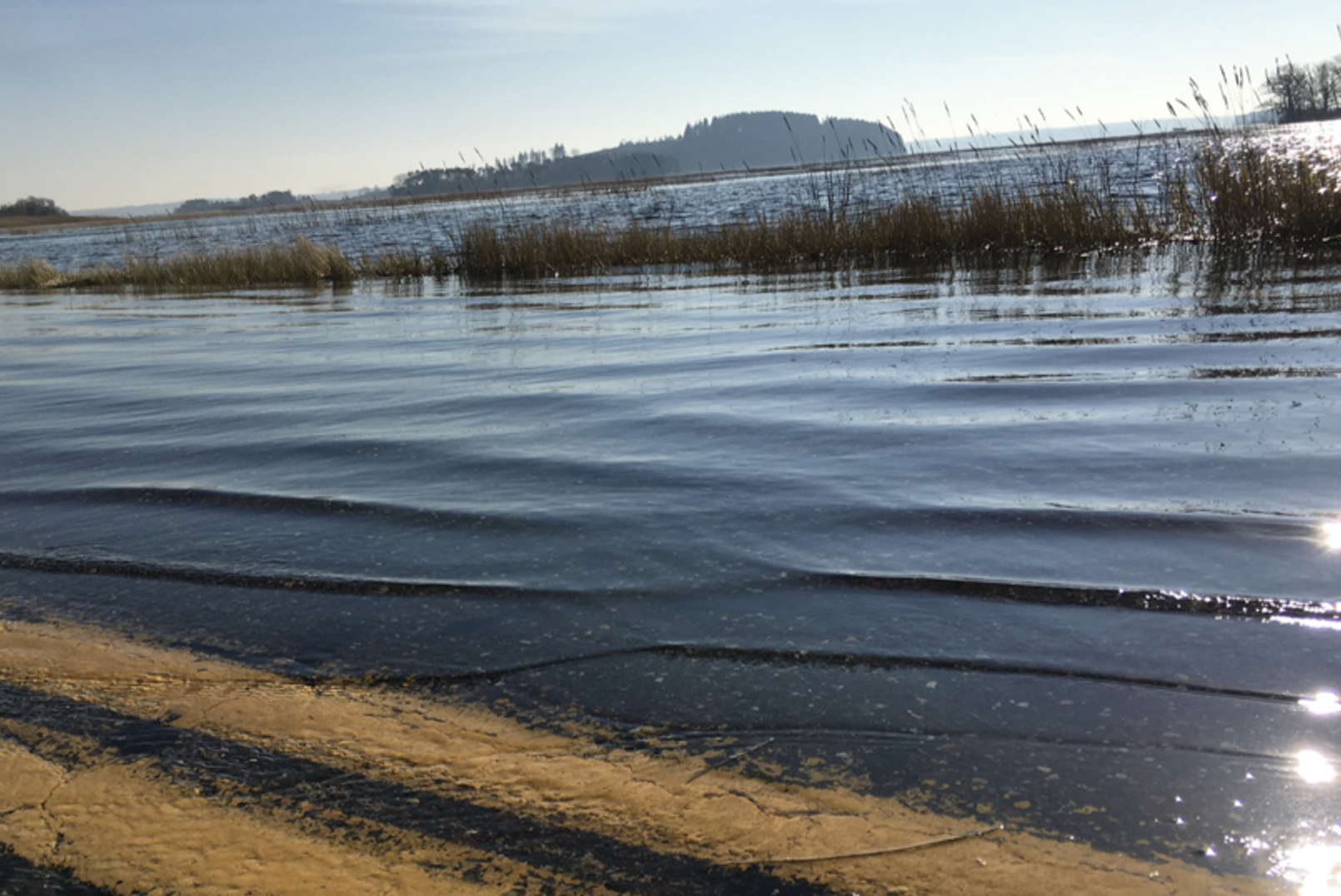The Trustees of Reservations will partner with the town of Ipswich on a coastal resilience project, following a grant from the Executive Office of Energy and Environmental Affairs’ (EEA) Office of Coastal Zone Management (CZM) Coastal Resilience Grant Program.
This $75,642 grant will fund the next phase of a coastal road resilience project in Ipswich. A partnership between the town and The Trustees, the project will bolster the resilience of Argilla Road—a key point of access for thousands of visitors to the Crane Estate and Crane Beach as well as for residents, fishermen, and clammers—as it faces increasing challenges from flooding events.
This essential road and the surrounding landscape were identified as one of The Trustees’ properties most susceptible to climate change impacts by an extensive climate vulnerability assessment (CVA) carried out in partnership with the Woods Hole Group in 2017. The CVA forecasted a 100% probability of inundation for Argilla Road in the next 10-50 years.
The project ultimately seeks to raise an approximately half-mile stretch of Argilla Road between the Castle Hill and Crane Beach entrances. Along with raising the level of the pavement, the team is planning for nature-based designs to protect the side slopes of the elevated road from erosion, and replace a culvert under Argilla Road with a larger design that will allow for greater exchange of tidal water in the salt marsh. The next phase of work is anticipated to be complete by June 2022, to prepare the project for future construction. To learn more about this work, explore the project’s Storymap at onthecoast.thetrustees.org/argilla-road-project.
On Martha’s Vineyard, CZM awarded a $240,674 grant to the town of Edgartown to restore the primary coastal dune on South Beach and Norton Point Beach, relocate one of three bathhouses 50 feet inland, and remove an asphalt lot. Project partners include The Trustees and Dukes County. The restoration will use native plants and compatible dredge material to construct the dune. It will also move the current OSV trail further inland, away from its current location through the dune overwash area, with the goal of strengthening the resiliency of coastal infrastructure and publicly accessible shorelines.
“This dune restoration will take place along a vulnerable stretch of beach, where repeated overwash events from tides and storms have completely eroded the primary dune,” noted Tom O’Shea, Trustees Managing Director of Resources and Planning. “By restoring the primary dune we can help to protect the vital habitat on the beach and behind it, and maintain public access to this beloved property, which faces accelerating challenges in coming years from the impacts of climate change.”
The two projects to receive funding are part of a $4 million Coastal Resilience Grant round, supporting 19 projects in Braintree, Chatham, Dartmouth, Edgartown, Falmouth, Gosnold, Hingham, Hull, Ipswich, Marblehead, Marion, Mattapoisett, Orleans, Salem, Tisbury, and Wareham.
With 120 miles of coastline in its care, The Trustees is the largest private owner of protected coastline in the state, and is focused on trialing new, innovative solutions on and around its vulnerable shores. These two grant awards, announced on August 16, follow the August 4 release of The Trustees State of the Coast report, which explores current and future climate change-related risks to Martha’s Vineyard, Nantucket, and the Elizabeth Islands, as well as potential paths for adaptation and action. In 2020 the inaugural report focused on 13 coastal zone communities on the North Shore, including Ipswich. To explore the report findings, including interactive maps, visit thetrustees.org/coast.
“We are so grateful for the continued support of EEA and CZM, as we work to protect and adapt our vulnerable coastal properties to the impacts of climate change,” said Jocelyn Forbush, Trustees Acting President and CEO. “As our State of the Coast reports show, impacts such as storm surge and sea level rise are expected to accelerate in as little as 30 years—the time for action and collaboration is now.”
The Coastal Resilience Grant program supports local efforts to analyze and address climate impacts, plan for adaptation efforts, and raise community awareness. Including the latest $4 million round of funding, the Baker-Polito Administration has invested $23 million in 155 coastal resilience improvement projects through the Coastal Resilience Grant Program since 2015.

